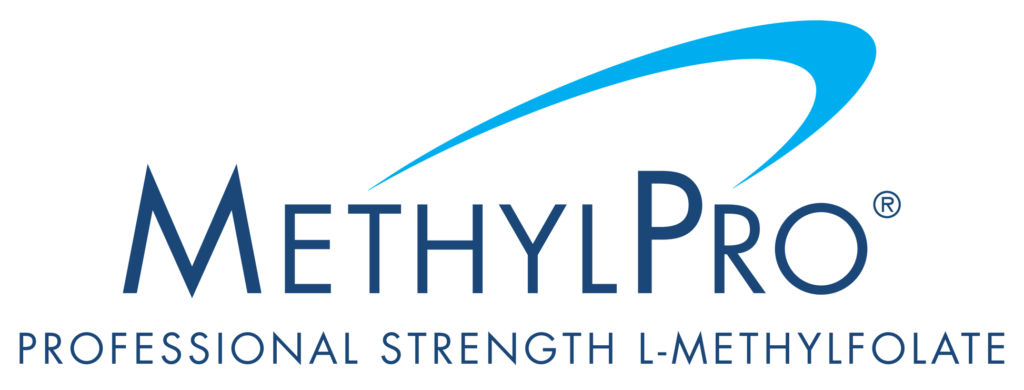Excipients are inactive and non-nutritive additives used in most supplements and medications. They may be added to improve stability, enhance taste or appearance, or facilitate manufacturing processes. While excipients make processing and storage of supplements easier, there are potential health risks that come with their use. We’ve got some info to share about the most common culprits and vitamin fillers to avoid.
Why MethylPro® DOES NOT Add Excipients
Because customer health is our top priority, we built our brand around omitting excipients (and were the first to do so). Here are the primary reasons MethylPro® has made a commitment to providing supplements with no added excipients:
1. Allergies
Some excipients used in supplements, such as fillers, binders, and preservatives, may be derived from common allergenic substances like gluten, soy, dairy, or nuts. These ingredients can cause adverse reactions in individuals with sensitivities or allergies to these substances [1].
2. Safety
There are associations between some excipients and potential health risks or side effects, including concerns related to metabolism, gut microbiota, and neurological health [2,3].
3. Interactions with medications
Some excipients interact with medications, altering their absorption, metabolism, or effectiveness [4]. This can be particularly devastating for individuals taking multiple medications or those with specific health conditions.
4. Lack of transparency or quality control
Excipients used in supplements may not always be clearly disclosed on product labels or may vary in quality [5]. This can make it challenging for consumers to make informed choices and assess potential risks associated with their use.
5. Unnecessary bulk
A recent analysis of common oral agents reports that most (76% on average) of the contents in capsules, pills, or tablets, are inactive excipients [6]. The consumer cannot tell when looking at these products how much nutrition (or lack thereof) is in each capsule.
What are Some Common Excipients Found in Supplements?
The excipients themselves create a problem, but the second problem is the fact that many of them are hiding in plain sight. Even when they are on the ingredients list for your supplement, some hide behind names that sound similar to nutrients you do want to ingest. Here are just a few examples of vitamin fillers to avoid:
Magnesium Stearate
Sounds like a nutritional ingredient, but it’s not. It’s a lubricant that most pharmaceutical and supplement manufacturers add to allow faster flow of capsules through processing. The problem is that magnesium stearate can form a film during mixing that can make a capsule harder to digest, and thus, its contents more difficult to access and absorb. It is hydrophobic, and there are many reports in the literature concerning its adverse effect on dissolution rates [7].
Titanium Dioxide
Again, with a name that sounds like a mineral ingredient, titanium dioxide is a non-nutritive excipient. It’s a common white colorant, color enhancer, and UV protector. The European Food Safety Authority (EFSA) recently listed this additive as “unsafe” because of uncertainties about possible inflammation and genotoxicity [8]. Genotoxicity refers to the likelihood for a chemical substance to damage cellular DNA, which can lead to carcinogenic effects [8].
Plant Cellulose
While not a toxic ingredient, plant cellulose is indigestible, non-nutritive microcrystalline pulp isolated from wood or cotton [9]. It’s job is to hide how little nutrition a capsule actually contains. Plant cellulose filler is also expensive; a cost that the consumer ends up paying for.
If you see two capsules, one very full and one that contains some air, it leads you to believe the fuller capsule contains more nutrition. If the full capsule comes from one of our competitors, its contents may be a majority cellulose.
The only cellulose you will find in our products is that used to construct our high-quality, vegan capsule casings. Never as non-nutritive filling.
What to Expect From Supplements With No Added Excipients
This commitment to your health requires us to make smaller batches more often, with more time and attention paid to the quality and stability of the finished product than other brands.
We cannot automate all parts of manufacturing because we do not use lubricants, and you may notice some variability in the color of your capsules because we don’t use dyes or preservatives. Our amber glass bottles contribute to protection from UV damage, but we also ask you to pay close attention to the expiration dates printed on your supplements and store them responsibly to maximize their shelf life.
These added efforts allow us to provide you with a superior product; one that is deserving of your trust and loyalty.
References
- https://www.jstor.org/stable/26940877
- https://link.springer.com/article/10.1007/s00204-022-03334-x
- https://www.sciencedirect.com/science/article/pii/S2161831322001983
- https://link.springer.com/article/10.1007/s11095-012-0767-8
- https://ajph.aphapublications.org/doi/abs/10.2105/AJPH.2014.302348
- https://www.science.org/doi/abs/10.1126/scitranslmed.aau6753
- https://www.ncbi.nlm.nih.gov/pmc/articles/PMC5736124/
- https://www.efsa.europa.eu/en/news/titanium-dioxide-no-longer-considered-safe-feed-additive
- https://www.mdpi.com/2079-4991/10/5/975

